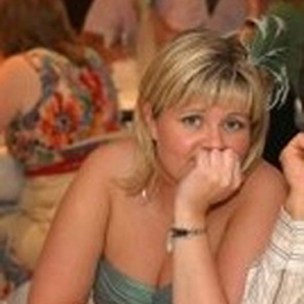Qualifications: BSc in Combined Science: 75% Maths, 25% Psychology (University of Leicester), Received 1st class honours
PhD in Pure Maths & Computer Science (University of Luton), Received 1st class honours
What stimulated your interest in maths, and when?
I have always loved the thrill of solving an equation or Maths problem. I think it is the logical nature and the challenge of it that I relate to the most and having to use lots of different techniques to get to the answer. As a child I was intrigued by machines and always wanted to work with them. This was slightly before the age of home computers and I still remember how delighted and amazed I was when I got my first computer when I was 8 and how I programmed it to play Black Jack! Upon studying Maths more I could not fail to be amazed at how beautiful and symmetric it could be and I wanted to keep understanding it more and more.
What influenced your career choice?
I didn’t know what I wanted to do when I was at school – all I knew was that I wanted to study Maths. Going to University gave me the ability to look at different career options – and do work experience – and see what type of work I wanted to do.
How did you get your current job? & What were the steps you took from graduation?
After I finished my undergraduate degree, I was lucky enough to be offered the chance to do a PhD in Pure Maths and Computer Science. This was really one of the best jobs that I could have done as I was paid to study Maths! My PhD involved designing a software system for Group Theorist so they could visualize groups and therefore study them in a new way. I would recommend a PhD to anyone that is given the chance as not only can you develop new research techniques but it also teaches independent thinking and gives you the opportunity to travel and meet and talk about your work with fellow Mathematicians. I was lucky enough to go to Australia, France, Belgium, Italy and not forgetting Luton with my PhD.
After I completed my PhD I realised that I wanted to work in an area that uses Maths in everyday life. My current position was advertised in a local newspaper and I was immediately drawn to it as I saw my skills could make a real difference in such a small, yet, aspiring company.
Could you briefly describe the organisation you work for?
CMS is a unique company in that it combines sophisticated mathematical modelling skills and techniques with procurement expertise to reduce costs for retail and financial services clients. It is only a small company (18 members of staff in total) but we consult for some of the biggest companies in the world (Tesco, Exxon Mobile, BP, McDonald’s, Sainsbury’s and M&S). The exciting thing from my point of view is that you can instantly see the effects of implementing your work on the clients’ budgets so it combines mathematical theory with real life applications.
The company is split into two sections – retail and retail finance (which includes Banks, Building Societies and Foreign Exchange and ATM companies). I now manage retail finance team. My team uses mathematical modeling and operational research techniques to manage cash balances for our client’s individual branches and ATM’s. This involves us predicting cash orders and devising the best days and frequency for these orders to be delivered. What many people do not realise is that there is a cost to these retail finance companies to have both cash delivered and holding cash on site. For example, when you go to an ATM to withdraw money and it is empty then this means we have not forecasted the demand accurately enough. Alternatively, if we put too much cash in the ATM then this means the client has to pay a lot more in bank charges and the money in the machine could be spent on something else (of course both these things never happen!). I have helped build this side of the business so that now we order more than £5 billion of currency every year and my team manages £100 million each day, every day.
Could you explain what you do on an average day at work?
It may be a cliché but there really is no typical day. I can be starting to build a new model for a client which is always one of the most exciting things as you are given hundreds of files of data and you have to produce a user-friendly, accurate model from it. Getting new data is also exciting as you have to work out what actually is going on with all the movements of cash and where any problems are.
Alternatively, I can be visiting clients in New York and launching a new cash system for them – so this involves presenting to senior managers and then going to branches to train the users of the system.
I can also be producing reports for clients on our performance and the benefits we have brought and also highlighting other areas where we can help, or doing research and seeing how the existing techniques we use can be enhanced.
I also have a team of people to manage and develop and this is also an interesting aspect of my role. It is good to discuss their ideas with them and see how we can implement them and also, as some team members are not confident in Maths, show them how useful and interesting it can be. I’m not sure they all enjoy the Maths quizzes I invent though!
What do you like most about your job?
I like the way I am able to apply theoretical Maths to real life situations and sometimes I am able to even improve upon existing techniques.
What are the most challenging parts of your job?
The most challenging aspect is the need to solve complex problems when there is a deadline. It can also be difficult to explain technical ideas and results to lay-people. Many of our clients are not mathematicians so I need to present my results in ways where they can understand them. For both areas, however, the satisfaction of achieving the challenge is amazing.
How relevant was your subject of study in securing your current job?
My current job uses a lot of mathematical expertise so in terms of subjects I use statistics and Applied Maths. However, the main things I use is the ability to think and work independently and come up with new ways to do something. The models I build for one client rarely match other models and therefore I am always thinking of how to use different techniques to benefit the client. My research skills are also useful as you need to be constantly reading about new developments and testing if the theory fits in with real life examples (sometimes they don’t and it is interesting to work out why!).
How do you use your degree in your current job?
I use a lot of statistical techniques and logic. The main skill is the ability to think and work both independently and together with my team by discussing ideas and seeing how they would work.
Which skills do you consider to be essential for your job?
Ability to look at things from different angles, knowledge of the mathematical theory, patience (sometimes it can take a long time to solve a particular problem which can be a challenge when there is a deadline) and ability to communicate complex ideas to non-experts.
Is there any advice you may have for other individuals considering your career path?
– If possible then study what you enjoy and be open to new ideas.
– Don’t give in if a problem or topic is too hard as with hard work and determination you will solve it, and the thrill and sense of achievement of solving something that was initially so difficult is the best high of all (and I find better than any financial payment).
How has being a Chartered Mathematician helped you in your career?
The Chartership is a great scheme as you have to demonstrate continual professional development so you do have to keep developing and learning new skills. This is something that can be neglected when you finish your degree but it is important in terms of your career and on a personal level.
The IMA itself is a very good organization to meet and discuss ideas with fellow mathematicians. As I work in a small company it can be difficult to talk to colleagues about new ideas and the IMA is one way in which I can do this. It is amazing to see how techniques in one area can be applied to a completely different idea! The conferences and branch events are also good ways to keep up to date with the latest research.
What are your future career plans?
I don’t really have any fixed career plans as such – I want to continue to use Maths in my career and find new ways to do so. Hopefully this will mean looking at new areas where Maths models can be built and used.






